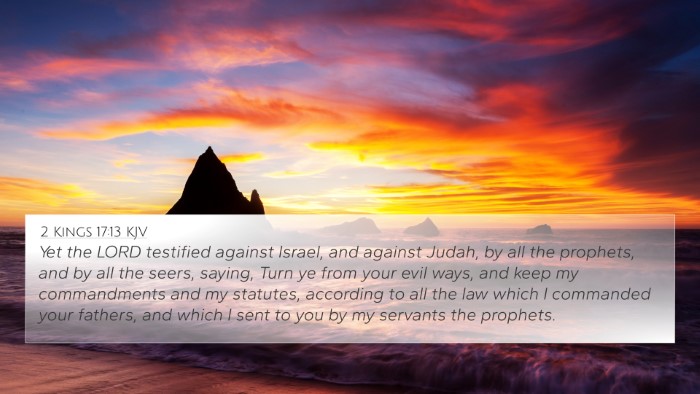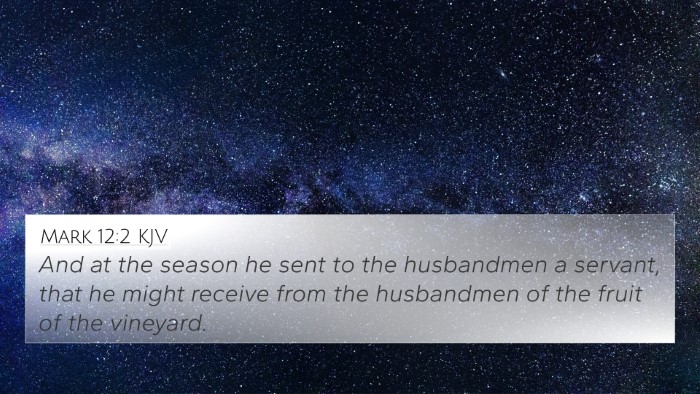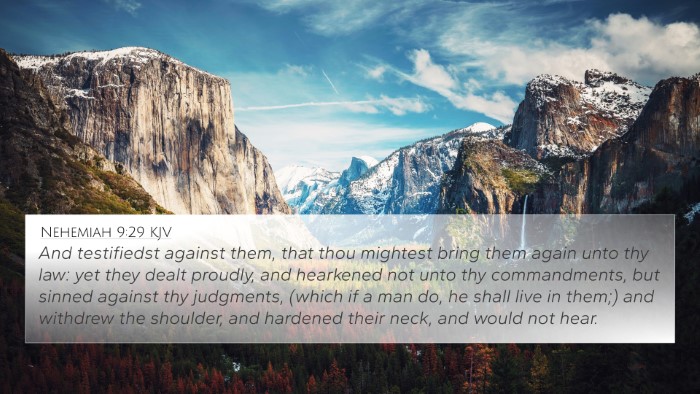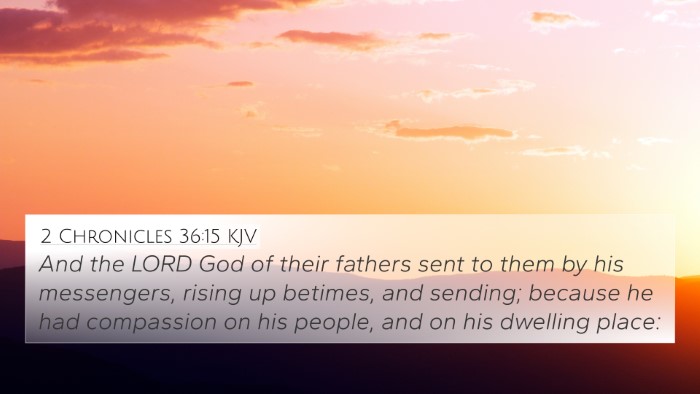Understanding Matthew 21:34
Matthew 21:34 states: "And when the time of the fruit drew near, he sent his servants to the husbandmen, that they might receive the fruits of it." This verse is a rich text that symbolizes God’s relationship with humanity and highlights the rejection of divine messengers, which can be further explored through various public domain commentaries.
Verse Meaning and Interpretation
Matthew Henry highlights that this verse illustrates the care of the owner (representing God) who sends servants (the prophets and messengers) to collect the fruits (the obedience and faith from the people). The act of sending implies a trust and a hope that the husbandmen (the leaders of Israel) would fulfill their obligations.
Albert Barnes elaborates that the expectation of fruits showcases God's rightful claim over His people and their duty to yield good works. He emphasizes the neglect and rejection faced by the servants, which prefigures the ultimate rejection of Christ.
Adam Clarke suggests that this verse also serves as an allegory of the whole history of God's dealings with His people. The husbandmen represent the Jewish rulers, and the fruits symbolize the faith and repentance expected from the people of Israel.
Cross-References and Thematic Connections
To deepen our understanding, let’s explore relevant cross-references that connect to Matthew 21:34:
- Isaiah 5:1-2: A song of the vineyard implies God's disappointment with unproductive vineyards.
- Luke 20:9-16: A parallel parable in Luke describes a similar scenario of tenants who mistreat the owner’s servants.
- Jeremiah 7:25-26: This verse talks about God sending messengers to Israel, who were continually rejected.
- Hebrews 11:32-38: Discusses the prophets who were mistreated, emphasizing the historical pattern of rejection of God's messengers.
- 1 Thessalonians 2:15: Paul remarks on how the Jews killed the prophets and rejected the message of Jesus.
- Matthew 23:37: Jesus laments over Jerusalem for killing the prophets and stoning those sent to them.
- Mark 12:1-12: Another account of the parable of the wicked tenants, reinforcing the message of the rejection of divine messengers.
The Role of Cross-Referencing in Biblical Study
Using cross-references is vital for deeper Bible study. They help illustrate themes, connect verses, and provide a framework for understanding the interrelatedness of Scripture. Here are some benefits of cross-referencing Biblical texts:
- Thematic Bible Verse Connections: Identifying themes like faith, obedience, and rejection across books.
- Comparative Bible Verse Analysis: Examining similarities and differences between accounts in the Gospels.
- Scriptural Cross-Referencing: Deepening Bible understanding by linking verses across different passages.
Tools for Effective Cross-Referencing
Consider utilizing these tools for enhanced Bible study:
- Bible Concordance: A useful tool for locating specific verses and themes.
- Bible Cross-Reference Guide: A structured approach to connect verses on similar themes.
- Bible Reference Resources: Compilations and studies focusing on key biblical themes.
Application and Reflection
Matthew 21:34 serves as a reminder of God’s persistent call for faithfulness and the tragic outcome when divine messengers are ignored. Reflecting on the lessons from this verse can inspire believers to honor their responsibilities and respond to God’s call in their lives.
In conclusion, exploring Matthew 21:34 within its scriptural context and through cross-references not only enriches our understanding but also deepens our relational experience with God and His Word.
User Intent Keywords
For those seeking answers about biblical connections: What verses are related to Matthew 21:34? Find cross-references for this verse through the themes explored in this study to enhance your personal reflection and understanding.














